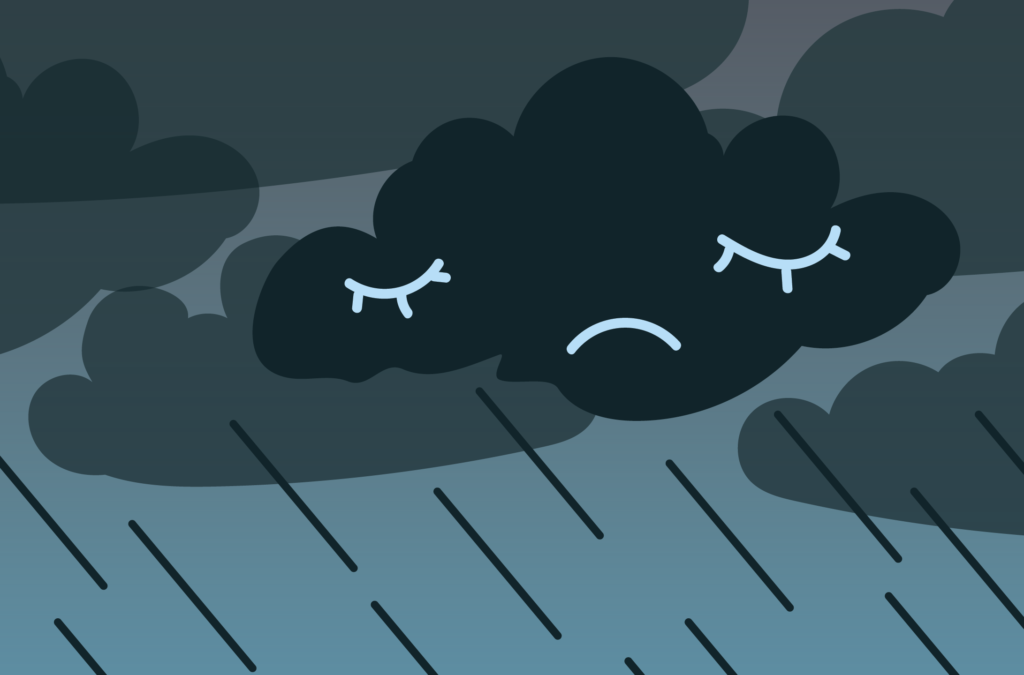Finals week is fast approaching, and with the end of the quarter comes the stress of tests and group projects. It also coincides with the arrival of winter, which means increasingly shorter and darker days. Especially in Seattle, our location in the Northwest gives us only eight and a half hours of potential sunshine, and any Seattleite whose made it through the gloom knows that sunny days are few and far between.
This makes it all the more important to maintain good mental health and there are resources on campus to help students work at their best.
Health and Wellness Crew, or HAWC, is a peer-educated group of undergraduate students who hope to help students through these seasonal mental health problems.
“We focus on four areas of health and well-being,” Third-year Nursing major and HAWC Member Peter Hoang said. “We focus on physical health, we focus on mental health, we focus on drugs and alcohol use, and we also focus on healthy relationships. Our programming is tailored around that.”
HAWC is run through the Wellness and Health Promotion Office, dedicated to helping their peers through researched programs and scheduled meetings, focusing on any issues people might come across as they begin their life as an independent adult.
One of the first and most intriguing resources of the homey and inviting Wellness and Health Promotion Office is the pair of sun therapy lamps. The panels are made to help treat Seasonal Affective Disorder (SAD)—a mental health disorder that can cause serious depression.
SAD generally shows up around the winter, when people experience an increase in drowsiness, sadness, or depressed. SAD is caused when the brain stays in a state of drowsiness after sleep without seeing the sunlight to put the body into its natural circadian rhythm, or our own internal body clock. Melatonin (and cortisol, hormones produced as you begin to fall asleep, are off balance as serotonin decreases.
The panels in the HAWC office are made up of a sheet of fluorescent bulbs that emit 10,000 lux of white light. The panels are used to help people that struggle with the sometimes gloomy weather of Seattle—especially those who come from sunnier states or countries and may not be used to the cloudy weather of Seattle winters. Hoang said the sun lamps are helpful when people get down about the weather.
“It helps people relax,” Hoang said. “I also just think winter can be hard because it’s difficult when you don’t necessarily see the sun much…and it’s different than what you’re accustomed to.”
The lights are best used in the morning as a way to stimulate morning sunlight, waking up your brain and body and starting that decrease of melatonin and increase of serotonin. The SAD lights are not the only solution though Hoang points out, as he thinks that socializing and connecting with your support network is important to good mental health—especially during seasons where problems can be more prevalent.
“I really think really tapping into the sports that you have in clubs or different organizations,” Hoang said, “I think that support is really, really helpful.”
With finals week also coming up, students are prepping for the end of the quarter and may feel some extra stress as they deal with exams and push for a satisfactory final grade. An important part of this is time management for students, as they have to balance their schoolwork with their own mental health, according to the online resources of HAWC.
HAWC also has other resources for students that are having a hard time coping with the stress of finals. To help students that are struggling with the season of hurried work, HAWC hosts Destress with Dogs, an event where students are given the opportunity to forget their worries for fifteen minutes of fuzzy fun. The event is located in STCN 160 and will be held on Thursday, Dec. 6 from 11a.m.-1p.m.
The resources provided by HAWC are varied and encompass a wide range of referrals, from on-campus offices such as Counseling and Psychology Services, to off-campus referrals such as 24-hour King County Crisis Hotline. Even if HAWC cannot help directly, it’s important that people leave feeling supported.
“We can always refer to different sources,” Hoang said. “We’ve been trained in what resources are helpful and beneficial people.”
The editor may be reached at
[email protected]














Ronna
Dec 31, 2018 at 2:59 pm
Excellent article Logan! Very helpful information!